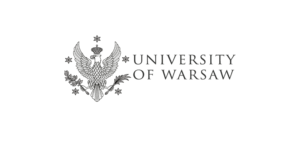Online Presentation: Shaping the West: Jesuit Strategies of Accommodating European visual Culture to the Chinese Context
September 24, 2020, 18.00-20.00 h, the second webinar in the series organized by the Centre for the Study of the Reformation (Faculty of „Artes Liberales”, University of Warsaw) and Koło Kultury Staropolskiej will take place. Presenter: Albert Kozik (University of Warsaw).
Meetings
The meetings are aimed at presenting interdisciplinary Polish research on broadly understood religious studies. Each week the invited experts will discuss their chosen issues.
Lecture
Compared to the situation a century earlier, the scope of accessible knowledge of China was already very broad in late seventeenth-century Europe, with the increasingly abundant—although not always precise and reliable—amounts of information transferred from the East to the West. Christian missionaries, and the Jesuits in particular, acted as mediators in this process and were responsible for much scholarship on China published at that time. They played, similarly, an important role in introducing Western culture, science, and technology to the Ming and Qing empires, with the purpose of evangelizing China by means of the strategy of accommodation. Catholic theology was presented to the Chinese in the guise of concepts borrowed from traditional philosophical systems which the missionaries encountered in the East, and new knowledge was systematically imported and translated into the literary standard of the Chinese language.
The scholarship dedicated to the Jesuit accommodation in China is abundant and much has been written on the missionaries’ presence in the Ming and Qing empires. The focus has remained, however, on the literary activity of the Jesuits, their writings providing crucial information on how religion and knowledge were described for the Chinese. The aim of this presentation is therefore to shed some light on the field that has proved a no man’s land in the history of Western-Chinese cultural exchange in the early modern period, that is, the visual strategies adapted by the missionaries to adjust ‘Westerness’—perceived in terms of religion, art, and science—to the Chinese context. Athanasius Kircher’s China Illustrata (1661), a seminal sum of knowledge of China that the Jesuits had accumulated until the mid-seventeenth century, attempted to illustrate the empire, both literally and metaphorically, for the Europeans. Yet the West was likewise illustrated for the Chinese, and there existed several strategies which the missionaries used, such as cultural appropriation, visual borrowings and transfers, and providing Western art with commentaries. Both written and visual sources will be analyzed in order to demonstrate how images, objects, and texts were consciously employed to serve the purpose of shaping the West in the eyes of the Chinese.
Link
To receive a link to the webinar, please enter your e-mail address in the online form.
The link to the event will be sent before the meeting.
The series of online seminars will present RESILIENCE as a common platform for various researchers, supporting their international presence.
Next Lectures Online
1 October 2020 Anna Skolimowska (University of Warsaw),
Corpus of Ioannes Dantiscus’ Texts and Correspondence (dantiscus.al.uw.edu.pl) – opportunities and perspectives
8 October 2020: Jakub Koryl (Jagiellonian University)
Philosophies of Reformation: Socinian Metaphysics of Presence
